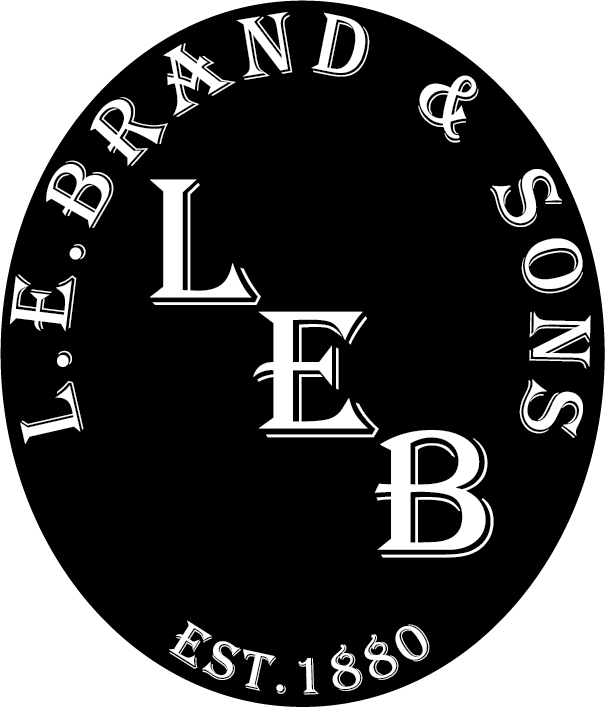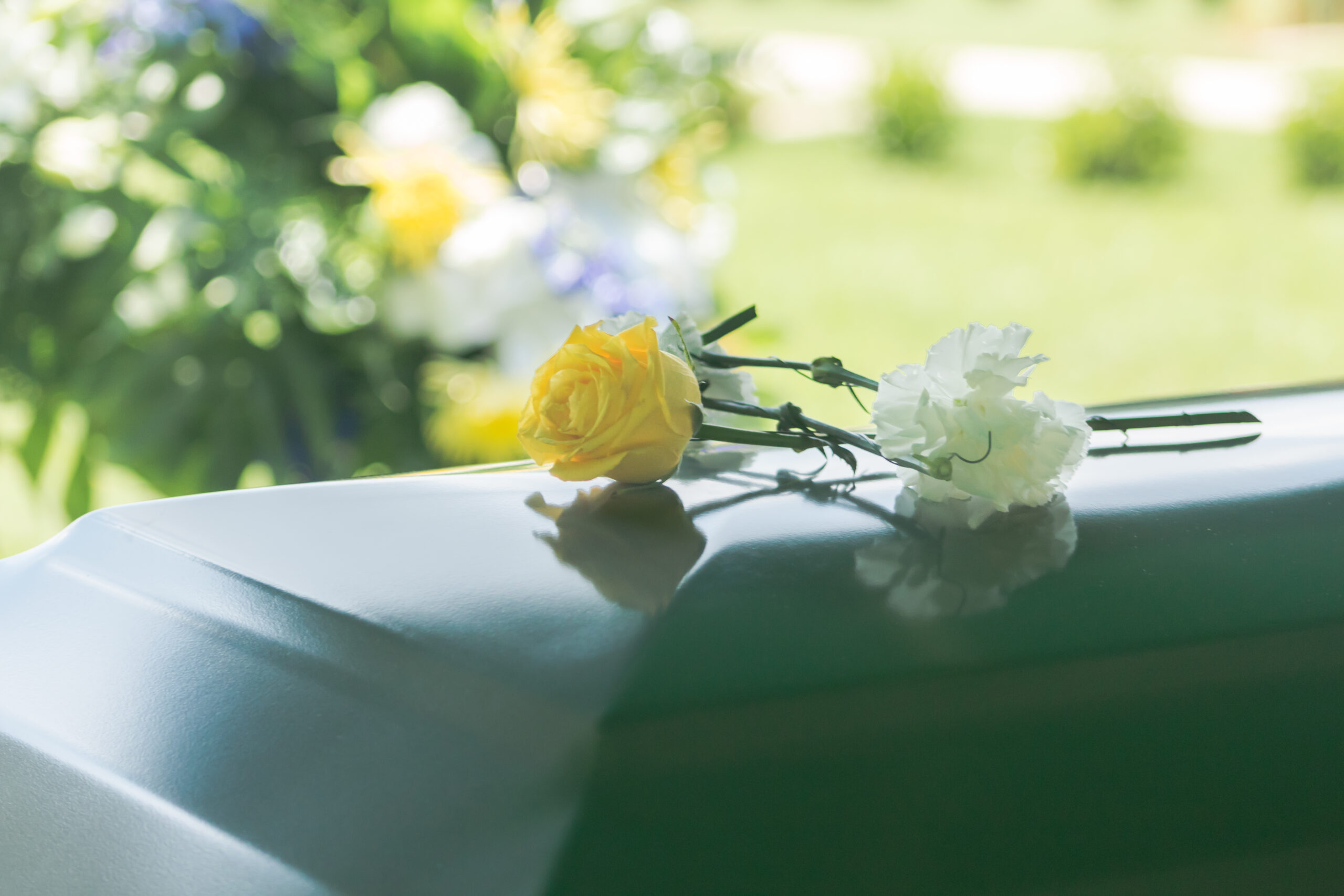When planning a fitting tribute for someone who has passed away, there are so many things to consider. Making decisions that commemorate your loved one, honour their wishes and respect the wishes of family and friends can be challenging, particularly during such an already difficult time. We at L.E Brand & Sons understand the weight of carrying the responsibility of funeral planning and are often asked, what types of funerals are there? In this blog post, we’ll explore the different types of funerals available to you. We’ll also highlight their benefits and provide advice on how you can pick the one that’s right for you, your family and friends and, most importantly, your loved one.
L.E Brand & Sons are family-run independent funeral directors who have been providing first-class bespoke funeral services to the community since 1880. This means that we understand the importance and sensitivity of this necessary process. We have a dedicated team of professionals on hand 24 hours a day to look after your needs and care for you and your loved ones. We provide compassionate knowledge and support from the very first phone call, supporting you every step of the way. We’re here every step of the way, so if you need guidance about funeral types of need advice about planning a funeral, please don’t hesitate to get in touch with us today.
What types of funerals are there?
When facing the task of planning a funeral, the many options available can be overwhelming. The type of funeral you choose will hinge on the beliefs, values and wishes of your loved one and family. Each type of funeral offers unique characteristics to help you commemorate your loved one. Choosing the type of service you’d like for your loved one’s funeral is a highly personal decision and whether religious or non-religious, it’s good practice to reflect the beliefs and values of the departed.
Here are some examples of types of funeral services…
Burial
A burial is a traditional funeral service whereby you will choose a coffin or casket for your loved one, in which they will be buried or entombed in a mausoleum. Burials can be either in-ground or above-ground, depending on the cemetery and family preferences.
Why choose a burial?
- Provides a physical place for family and friends to visit and pay their respects.
- Often includes a more structured and traditional ceremony.
- Can be tailored to meet religious or cultural requirements.
Religious Funeral
A religious funeral is a traditional funeral service with a religious ceremony. Religious funerals may include prayers, hymns, and readings in line with the deceased’s beliefs and typically take place in a church or chapel and are led by a religious minister.
Why choose a religious funeral?
- Provides spiritual comfort and adherence to the deceased’s faith.
- Offers a sense of community and shared mourning within the religious group.
- Can include traditional rituals that bring solace and meaning.
Traditional Cremation
A traditional cremation involves a standard funeral service followed by cremation. This type of funeral service includes a formal ceremony, and the cremation itself. The ashes can be kept, buried, or scattered as desired.
Why choose a traditional cremation?
- Allows for a full funeral service and cremation, providing a comprehensive farewell.
- Offers flexibility in how and where the ashes are handled.
- Often more cost-effective than burial while still providing a formal ceremony.
Celebration of Life
A celebration of life funeral focuses on the person’s individuality, personality and life. Music and memories typically play a big part in celebrations of life. They can be a part of a non-religious funeral or as a separate memorial.
Why choose a celebration of life?
- Creates a positive and uplifting atmosphere.
- Highly personalised and can be more engaging for attendees.
- Offers flexibility in format and location.
Eco-Friendly Funeral
An eco-friendly funeral may be a woodland burial and typically uses biodegradable materials for the coffin and memorial. This type of service can be religious or non-religious and typically takes place outside.
- Environmentally friendly, reducing ecological footprint.
- Often less expensive due to simpler processes and materials.
- Can include natural burial sites that offer a serene and beautiful final resting place.
Direct Cremation
This simple and dignified direct cremation service is for those who don’t require the traditional elements of a funeral service such as a ceremony or procession that involves a hearse. It involves the immediate cremation without a funeral service. The ashes can then be returned to the family or scattered in a meaningful location.
Why choose a direct cremation?
- Lower cost compared to traditional funerals.
- Offers flexibility in planning a memorial service at a later time or place.
- Simplifies the process, reducing stress and logistics.
Alternative Funerals
Alternative funerals are personalised ceremonies that depart from the traditional to create a unique and meaningful tribute to the deceased. They can incorporate unconventional themes, locations, and elements such as music, art, or nature to reflect the personality and interests of the deceased
Why choose an alternative funeral?
- Reflects lifestyle, interests, and personality to create a more meaningful experience.
- Allows for innovative approaches to the funeral service.
- Can provide a more positive atmosphere, focusing on celebrating life rather than mourning.
At L.E Brand & Sons, we can help you with choosing the funeral service that is right for you and your loved ones. We can help you commemorate your loved one in the way that best suits them.
How to Pick the Right Funeral Type
Choosing the right type of funeral is a deeply personal decision, influenced by various factors. A funeral director can guide you through the decision-making process regarding funeral types. At L.E. Brand & Sons, we recognise the cultural, religious and environmental implications of funeral options and can help you decide which is right for your family. We will take the time to understand your preferences and will help you to decide on one that best reflects the wishes of the departed and your family’s values. Here are some steps to guide you through the decision-making process:
- Consider the Wishes of the Deceased
Sometimes individuals choose to pre-plan all or some of their funeral services. Whether a loved one has expressed their preferences in a will or through conversations with family members, it is vital to follow their instructions. As well as honouring the memory of the deceased, respecting their wishes and selecting their desired funeral type can bring comfort.
- Family & Cultural Expectations
Cultural, religious and familial beliefs play a significant role in selecting the right type of funeral for your loved one. A funeral director will work to understand the expectations and beliefs of the family and deceased to ensure that the funeral honours and reflects these traditions sensitively from beginning to end.
- Evaluate Financial Constraints
Different types of funerals can vary significantly in their cost and while you may wish to have one funeral type, it may not be within your budget. In this instance, you should assess your budget and explore options that provide a meaningful ceremony without causing a financial burden on family and friends.
- Atmosphere & Tone
The atmosphere and tone of the funeral type will have a bearing on how you choose to remember your loved one. You will need to consider if you prefer a traditional and formal service or a more relaxed and celebratory ceremony. Deciding on the atmosphere and tone you wish to bring to the day will help you choose the right type of funeral.
- Environmental Impact
If environmental impact is a concern to you, your family and your loved one, you may wish to consider an eco-friendly option. Choosing an eco-friendly funeral service typically uses biodegradable materials for funeral features, such as the coffin, and can significantly reduce the ecological footprint of the ceremony.
- Seek Professional Advice
If you’re still unsure which type of funeral is best for you, seeking professional advice and recommendations from funeral directors can be invaluable. At L.E Brand & Sons, we offer personalised advice to help you navigate your options and make a decision that aligns with your values and needs.
Picking the right funeral type, although challenging, ensures that your loved one receives a memorable send-off that honours their memory, beliefs, values and more. By considering these factors, you will be able to celebrate the life of your loved one in the way that they, and you, wish to remember them. For more information about funeral types, get in touch with us today.
In Conclusion…
Choosing the right funeral type is a significant decision that reflects the life, values, and beliefs of the deceased and their family. Whether you choose a traditional burial, a direct cremation, a religious service, or an eco-friendly celebration, the goal is to create a meaningful and respectful farewell for your loved one. At L.E. Brand & Sons, we are dedicated to supporting you through this process with compassion, experience and care. Our wide range of funeral services ensures that you can find the perfect way to honour and commemorate your loved one, creating a lasting tribute that resonates with their unique life.
If you’re not sure how to go about planning a funeral, or if you need support during this difficult time, read our 10 Ways Your Funeral Director Can Help You blog post. We explore the key steps to planning a funeral and provide valuable insights to help you navigate this difficult time. If you need advice or guidance about planning a funeral, contact us today.
Funeral Planning Checklist
Planning a funeral is never easy, so we’ve put together this funeral planning checklist to help you with the arrangements. Here are the steps to take when someone passes away:
- Register the death within 5 days to obtain the death certificate.
- Check to see if the deceased has left any funeral instructions in their Will (or elsewhere).
- Check if they had life insurance or a prepaid funeral plan.
- If using one, hire a funeral director.
- Decide on the type of funeral – cremation or burial.
- Choose the type of coffin.
- Decide on the type of funeral service (e.g. religious or non-religious).
- Choose the venue (e.g. chapel, burial site etc).
- Arrange the transportation.
- Choose the flower arrangements (or select a charity for donations.
- Plan the service details in full (including dress code, music, readings, eulogy etc).
- Create the order of service.
- If having a wake, book the venue and catering.
- Send out invitations.
At a glance, these are the basic steps to follow when planning a funeral for your loved one. If you’d prefer to speak to our compassionate team, get in touch with us today for more information.
Some people never get around to discussing funeral wishes with their loved ones, which can lead to all sorts of worry and anxiety when the time comes. By taking some time now, you can provide your loved ones with financial and practical help, as well as peace of mind, by having your funeral arrangements in place. Get in touch with us today if you need help arranging your Funeral Plan.
Taking Care of You Every Step of the Way
If you require our services you can contact us on 01375 672142 or use our contact form. You are also welcome to visit our branch where a compassionate team member will be available to offer advice. Our opening times are Monday to Friday 9am to 5pm and Saturday 9am to 1pm. A dedicated team is always available 24 hours a day 7 days a week and can be contacted outside of office hours.


